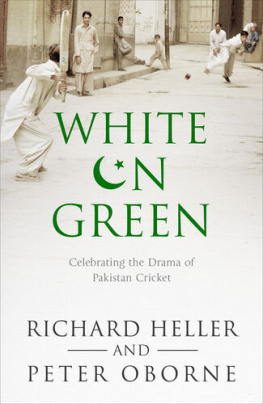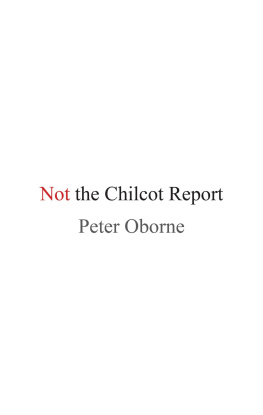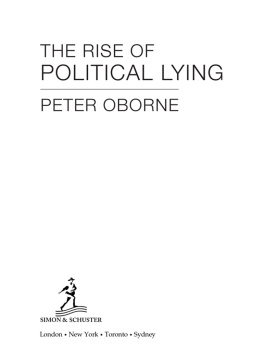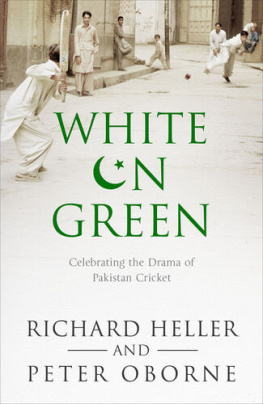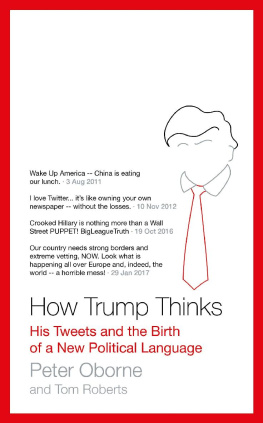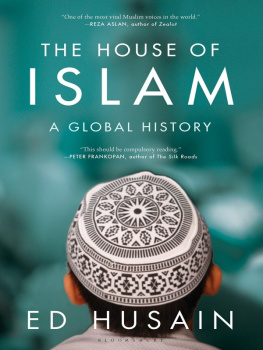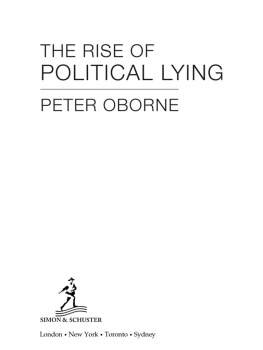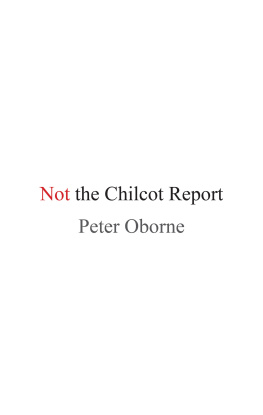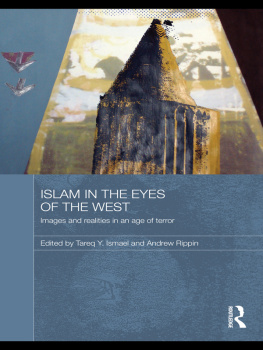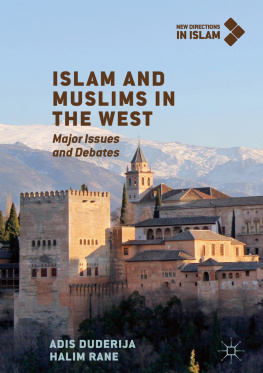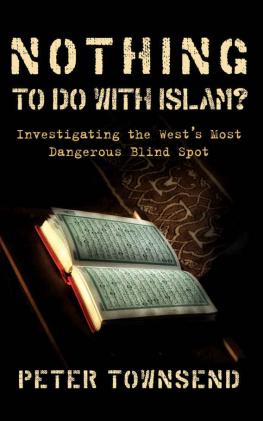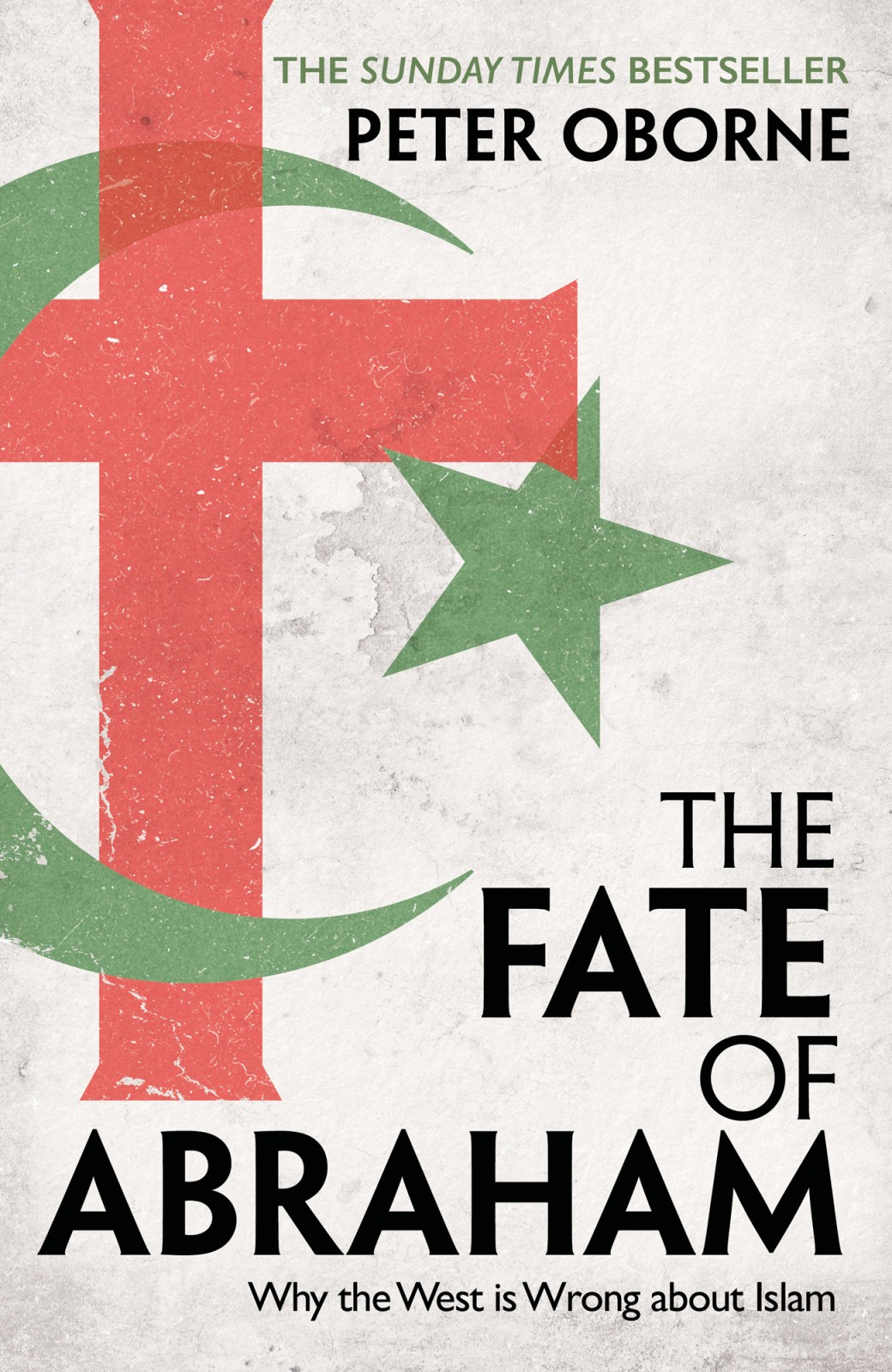The Sunday Times Bestseller
Peter Oborne
The Fate of Abraham
Why the West is Wrong about Islam
Thank you for downloading this Simon & Schuster ebook.
Join our mailing list to get updates on new releases, deals, recommended reads, and more from Simon & Schuster.
CLICK HERE TO SIGN UP
Already a subscriber? Provide your email again so we can register this ebook and send you more of what you like to read. You will continue to receive exclusive offers in your inbox.
PROLOGUE
It has taken nearly twenty years to research and write this book. The Iraq War and its terrible aftermath was the trigger. Until then, I regarded the British state as virtuous.
I loved and was thankful for the monarchy, Parliament, the army, the rule of law, the NHS, the Foreign Office, the BBC and everything that the United Kingdom stood for. I considered liberal capitalism the best system of economics the world has had. I was a conventional Conservative. I wrote for Conservative newspapers.
I was brought up in the British establishment. My father was a career army officer. Lt-Col Tom Oborne, my grandfather, was awarded a DSO for building bridges after D-Day. Recently I went to the National Archives at Kew and obtained a copy of his citation. I read how he would make perilous journeys into the centre of rivers under accurate German small-arms fire. I examined the citation carefully because he had never talked about his DSO when alive. If pressed, he said it was given not to him at all but the men under his command. It hangs above my desk as I write. My mothers father served in the British navy during both world wars.
Her grandfather in turn fought at Omdurman, in the Boer War and then for three years on the Western Front where he commanded the Cameron Highlanders and acquired a bar to his DSO. Winston Churchill, according to family tradition, was his fag at Harrow. My great uncle, aged just nineteen years old, was killed in the First World War. My mother, who was brought up in the same house in Devon where he spent his childhood, says she used to see this young man with his gentle, innocent, kindly face on the landing when she was growing up in the 1930s.
You had to look quite hard to find a male member of my family who had not served at some point in the armed forces. I was taught that all these brave men fought for tolerance and decency, and stood up for the underdog against fascism and bullying.
This was the atmosphere I breathed while I grew up, and I eventually took some of it with me into a career in British journalism. In 2001, when the planes flew into the Twin Towers, I was political correspondent on The Spectator, the political magazine of the former ruling class.
Boris Johnson was the editor, and we would spend much of our time describing doomed attempts by the Tory party to cope with the calamities and humiliations inflicted by Tony Blairs New Labour. Johnson would say: The Spectator is not a political magazine: we are a journal of manners. New Labour ran Britain, but not The Spectator.
This idyll could not last. The turning point was Iraq, and my realisation that the British state was party to a lie about the existence of weapons of mass destruction in order to justify an illegal war. This led me to re-examine everything that I believed.
Then came the Hutton Report into the death of the government scientist David Kelly. I read this document and realised that this too was a deception. I had not grasped that judges could be bent. I reeled, bent down and placed my head in my hands. I had liked the look of Lord Hutton, with his clipped speech and grey, sober suits. He made a fool of British justice. I had followed the Hutton Inquiry closely, and knew the evidence as well as he did.
I went mentally into opposition to the British state. I wrote a book, The Rise of Political Lying, which explored the collapse of integrity which had permitted the Iraq War. I read deeply and started to understand that truth as I had been brought up to understand it based on empirical evidence which could be independently tested no longer existed. It had turned into an instrument of power, a weapon to be used and manipulated for political advantage. This was years before the term fake news had become current with the emergence of the alt-right and Donald Trump, so that was more of an original insight then than it is now.
Then I turned to a more ambitious enterprise. It had become plain that Tony Blair and the war party couldnt have got away with telling their lies if the state the judiciary, the civil service, the Foreign Office, the intelligence services had not been party to the deceit. So I wrote a larger book, The Triumph of the Political Class, which explored how traditional British institutions had abandoned their integrity in order to become part of a broader political project.
It also hit me hard in the course of writing these books that I had been wrong to share the conventional assumption that the British media told the truth and by doing so held government to account. I concluded that many British journalists were actually instruments of power and part of a client media class that worked alongside and formed part of the governing elite.
My experience was the mirror image of the journey made by many of my former adversaries on the left. Iraq didnt shock them because they had always believed that the British state was rotten. Lying didnt shock them because they always assumed that the British state lied. A venal press couldnt shock them because theyd always assumed the media was biased. War crimes couldnt shock them because they always believed that the British state was illegal. They had never considered, as I had, that the British state could be fair-minded and decent. They opposed almost all the things I as a young man had as a whole supported: the Cold War, the nuclear deterrent, British foreign policy, spending on arms, the alliance with the United States, the first Gulf War in 1991.
Then there occurred the historic split on the left between those who saw Iraq as a just war and those who saw it as an act of aggression. A significant group abandoned their former comrades and became advocates for the American alliance, Tony Blair, the CIA and George W. Bushs war on terror. They joined the establishment just as I was leaving it. Some time in 2003, they and I passed one another, like ships in the night.
How I came to write this book
I started to investigate attacks on Muslims, just as a traditional reporter sets out to expose a miscarriage of justice or unsolved murder. I opened a file on the anti-Muslim stories which worked their way almost every day into the pages of British newspapers, including the ones I worked for, many from political and security sources. The first case I examined concerned an alleged plot by suicide bombers to attack Old Trafford football stadium, home of Manchester United. The story was a national sensation, dominating ITN and Sky News for two days. The front page of the Sun splashed MAN U SUICIDE BOMB PLOT with a two-page spread inside. This inflammatory press reporting was given ample assistance by the Manchester police, while politicians cheerfully joined in.
I went to Manchester and tracked down one of the suspects, a Kurd. He was a refugee from Saddam Husseins Iraq who had always supported Manchester United: perhaps it was his most meaningful emotional connection with Britain. The

